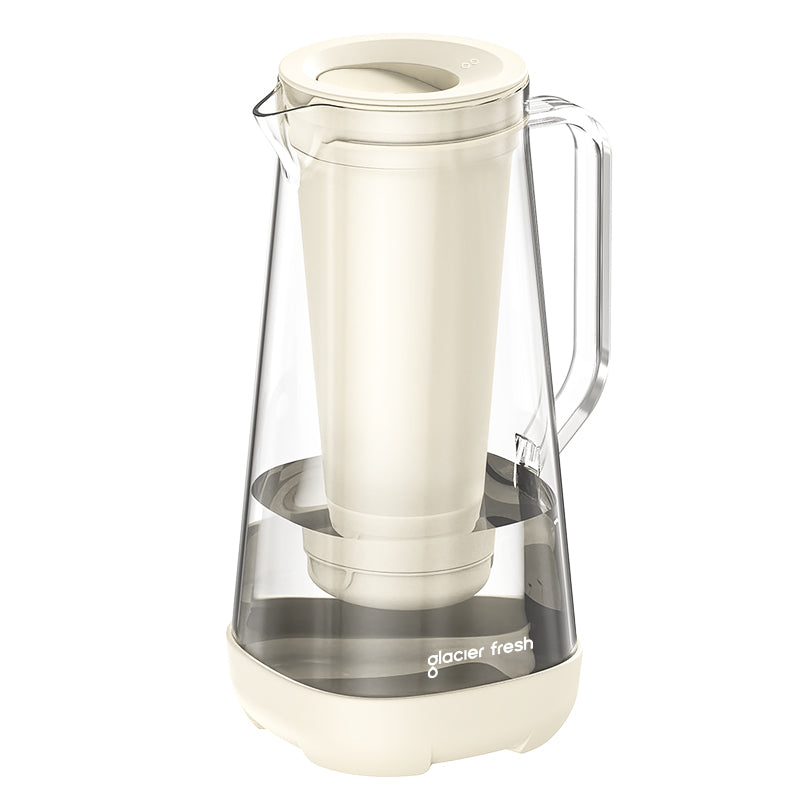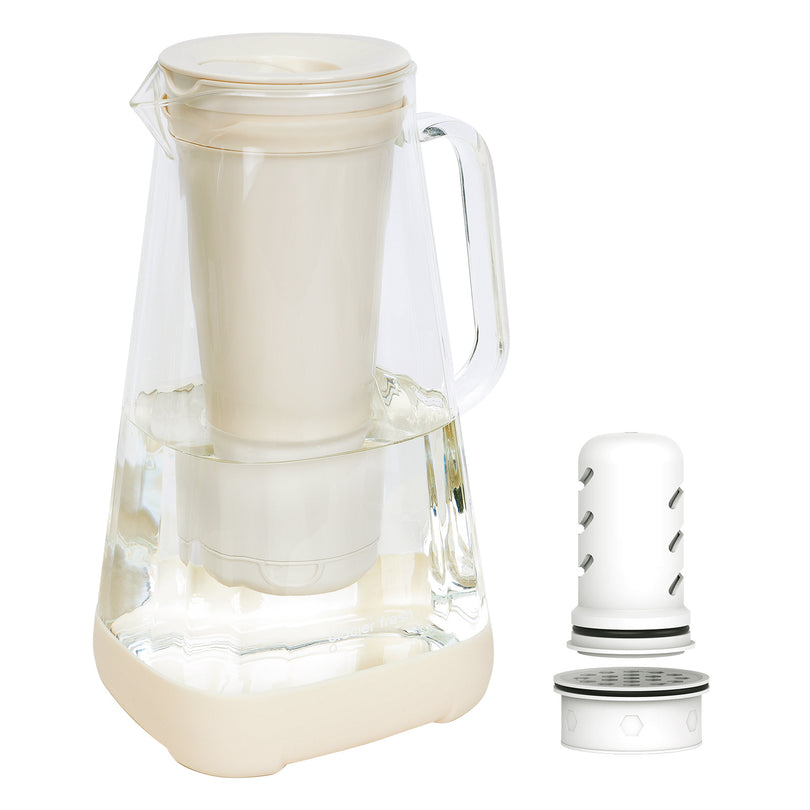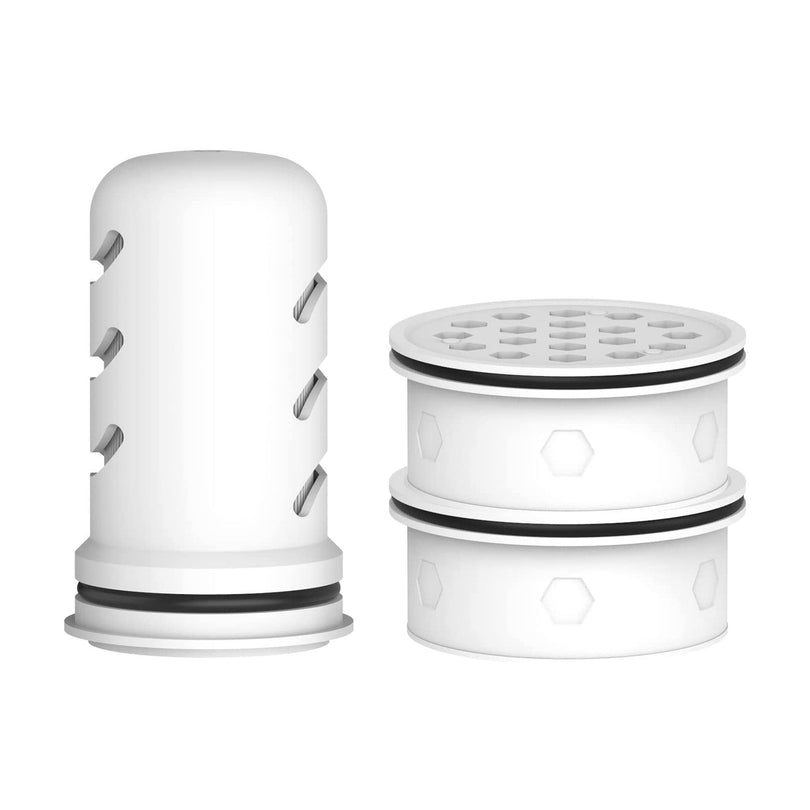Table of Contents:
Understanding reverse osmosis water system
The insights into countertop water filters
Key differences between RO systems and countertop filters
Which system is right for you?
FAQs
Conclusion
When it comes to ensuring the water quality you consume, you might find yourself torn between options such as the RO (Reverse Osmosis) systems and countertop water filters. Each has its merits and drawbacks, and your final pick might boil down to factors including installation ease, maintenance needs, efficiency in contaminant removal, and space constraints. What are the key differences between these two systems, and which one could be the right fit for your needs? Let's break down the details to help you make an informed choice.
Understanding reverse osmosis water system
Have you ever wondered how a reverse osmosis system works? It's all about a sophisticated filtration process that's designed for optimal water purification. You see, it's not just about making your water taste better. It's about transforming it into something that's genuinely healthier for you.
The beauty of a reverse osmosis system is that it's thorough. It doesn't just filter out the big, obvious stuff. It's designed to remove a wide range of contaminants you wouldn't even know exist. And it does this through a process that's as fascinating as effective.
The system uses pressure to force your water through a semipermeable membrane. This membrane acts like a super-fine filter, capturing anything larger than a water molecule. That means all those nasty contaminants get left behind, and only pure, clean water makes it through.
What are the health benefits? They're substantial. You're not just eliminating harmful substances; you're actively improving the quality of the water you drink. It's like giving your body a helping hand every time you take a sip.
The insights into countertop water filters
Countertop water filters are compact, user-friendly, and efficient in their purpose. The filter effectiveness of these systems is a primary selling point. They're designed to reduce many contaminants, including chlorine, lead, and certain biological elements. This is a key factor in the taste improvement you'll notice with your drinking water.
Another attractive aspect of countertop filters is their low maintenance requirement. Unlike bulkier systems, countertop filters are easy to install and require minimal upkeep. You won't need to stress over complex maintenance tips--typically, you'll only have to replace the filter cartridge once it has reached its lifespan.
But remember, not all countertop filters are created equal. The effectiveness and lifespan of the filter can vary based on the brand and model. So, do your due diligence before making a purchase. Compare the specifications and reviews to ensure a filter meets your needs and standards.
In the end, a countertop water filter can be a practical and efficient solution for better-tasting, cleaner water.
Key differences between RO systems and countertop filters
Having explored the benefits of countertop water filters, let's now contrast them with RO systems. The main difference between the two lies in the filtration technology used. RO systems utilize a semi-permeable membrane for filtering contaminants, offering a more thorough filtration. Countertop filters, on the other hand, mostly use activated carbon filters, which can't filter out as many types of contaminants.
The two also differ in their maintenance requirements. RO systems generally require more frequent filter changes, making them more labor-intensive and costly to maintain. Countertop filters are usually simpler to maintain and require fewer filter changes.
As for water taste, it's a subjective matter. Some prefer water from RO systems because it removes more substances, while others like the taste from countertop filters as certain minerals are retained. Now, let's visualize these differences in a table:

Which system is right for you?

Your choice between Glacier Fresh Reverse Osmosis system and a countertop filter largely depends on your needs and circumstances. This decision shouldn't be taken lightly, as the water quality in your home can impact your health, taste, and overall well-being. Consider the following when making your choice:
- Water quality: If you're dealing with heavily contaminated water, an RO system might be the best fit as it can remove more contaminants.
- Filtration needs: An RO system could be more efficient if you need filtered water in large amounts for drinking and cooking. Conversely, a countertop filter may suffice if you only need a small amount.
- Budget considerations: Countertop filters are generally less expensive upfront, but RO systems can be more cost-effective in the long run due to lower maintenance costs.
- Installation and maintenance: RO systems require professional installation and regular maintenance, while countertop filters are easy to install and maintain.
Ultimately, the best system for you'll balance your filtration needs with your budget considerations while ensuring the highest possible water quality.
FAQs
What is the average lifespan of RO systems and countertop filters?
RO systems typically last 10-15 years, depending on filter efficiency and water quality. Countertop filters, while simpler to install, generally need replacement every 6-12 months due to their less robust filtration capabilities.
How often should I replace the filters in an RO system and countertop filter?
Depending on the water quality, your RO system's filters must be replaced every 6-12 months. Countertop filter lifespan varies, but for optimal performance, you're usually looking at changing them every 2-6 months.
Conclusion
Whether you opt for an RO system or a countertop filter depends on your needs. If you're after the highest quality water, ready for ongoing maintenance, and have space to spare, an RO system is your best bet. However, a countertop filter will serve you well if you're seeking simplicity, portability, and lower maintenance. It's all about finding what fits your lifestyle and budget, and Glacier Fresh will provide you the best water filtration solutions.










